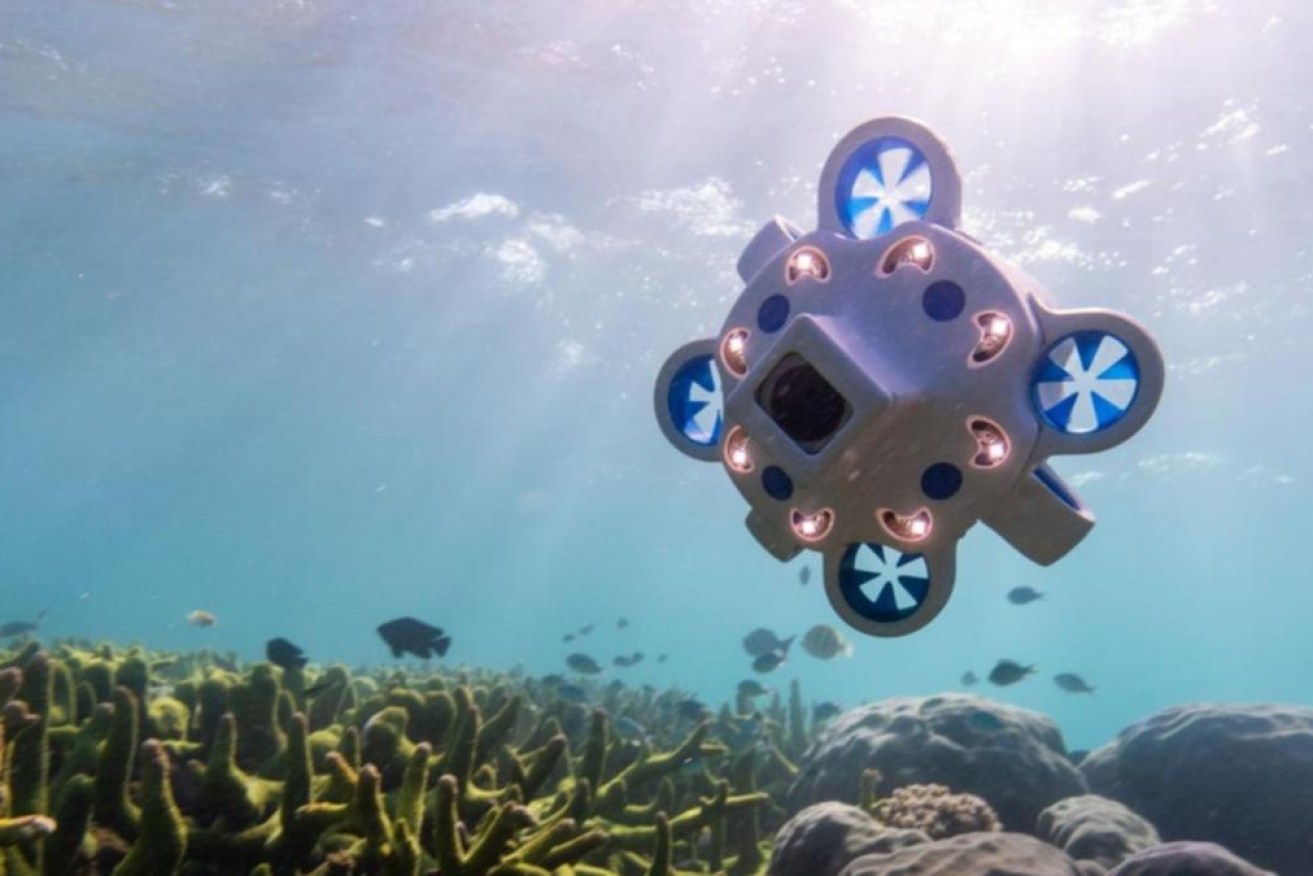Squid games: Sea drone to propel underwater research
An Australian-made sea drone that’s as agile as a squid and doubles as a high-tech science lab is poised to revolutionise how oceans are studied.

The Hrus sea dront, guided by artificial intelligence, has some big-name backers including former prime minister Malcolm Turnbull. (Image: Advanced Navigation)
The autonomous gadget, guided by artificial intelligence, has some big-name backers including former prime minister Malcolm Turnbull. Scientists believe it will slash the cost of marine research and the time and effort it takes.
At just 6kg, the Hydrus drone is light and can be deployed by a single person from the side of a tinny, with missions set and executed remotely via a web interface.
It has some impressive skills, including being able to fix its position in turbulent conditions and zip through complex environments without hitting anything, gathering scientific readings as it goes.
It has a cinema-grade camera and can be fitted with sensors to capture all kinds of data from climate change effects like coral bleaching and acidification, to fish stocks and coastal erosion.
Hydrus is the brain child of Xavier Orr, who says it’s a far cry from the heavy, expensive and difficult to deploy devices traditionally used.
The technology that powers the drone has been a decade in the making. Its financial backers also include mining magnate Andrew Forrest through his philanthropic Minderoo Foundation, and the CSIRO’s deep tech innovation fund.
It was recently used to carry out a survey at Ningaloo Reef, with applications for sea grass and kelp studies now being explored with the University of Western Australia.
At $40,000 each, pre-orders are rolling in after the Advanced Navigation co-founder and business partner Chris Shaw showcased it at an ocean trade show in London.
“That may seem super expensive but actually the current vehicles they are generally $500,000 upwards, and then you need a $1 million boat or ship to deploy them, and a crew of 12 or 14,” Mr Orr says.
Marine scientist Michaela Dommisse, the research and infrastructure manager for the Minderoo Foundation’s Flourishing Oceans project, says the organisation invested in Hydrus because of its potential to generate big data sets and revolutionise marine research as aerial drones have for terrestrial studies.
“That’s the kind of fundamental information you need to really unpick a system,” she says.
“You can’t manage something if you can’t measure it. This is an opportunity to unlock getting data, at greater speed and efficiency, at much less risk.”












